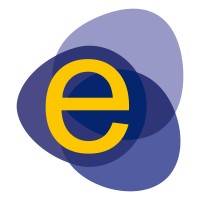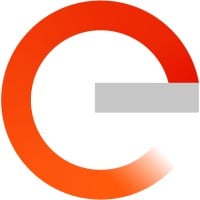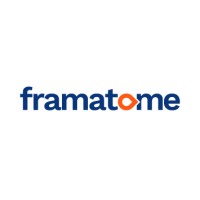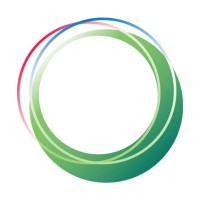
ENTSO-E Company Cyber Security Posture
entsoe.euENTSO-E, the European Network of Transmission System Operators, represents 39 electricity transmission system operators (TSOs) from 35 countries across Europe, thus extending beyond EU borders. ENTSO-E was established and given legal mandates by the EU’s Third Package for the Internal Energy Market in 2009, which aims at further liberalising the gas and electricity markets in the EU. Due to unbundling and the liberalisation of the energy market, the transmission system has become the meeting place in which the various players interact. ENTSO-E members share the objective of completing and ensuring the optimal functioning of the internal energy market. They also support the ambitious European energy and climate agenda. Through deliverables such as long-term network development plans (TYNDPs), pan-European network codes, coordination of research and development plans, EU-wide system adequacy, etc, ENTSO-E is contributing to building one of the world’s largest integrated electricity market, the benefits of which will not only be felt by all those in the energy sector, but also by Europe’s overall economy, today and into the future.
ENTSO-E Company Details
entso-e
264 employees
45671.0
221
Utilities
entsoe.eu
Scan still pending
ENT_1897440
In-progress
Between 800 and 900
This score is AI-generated and less favored by cyber insurers, who prefer the TPRM score.
 ENTSO-E Global Score
ENTSO-E Global Score.png)

ENTSO-E Company Scoring based on AI Models
| Model Name | Date | Description | Current Score Difference | Score |
|---|---|---|---|---|
| AVERAGE-Industry | 03-12-2025 | This score represents the average cybersecurity rating of companies already scanned within the same industry. It provides a benchmark to compare an individual company's security posture against its industry peers. | N/A | Between 800 and 900 |
ENTSO-E Company Cyber Security News & History
| Entity | Type | Severity | Impact | Seen | Url ID | Details | View |
|---|---|---|---|---|---|---|---|
| ENTSO-E | Data Leak | 60 | 3 | 03/2020 | ENT2313221222 | Link | |
Rankiteo Explanation : Attack with significant impact with internal employee data leaksDescription: An association of European electricity companies had experienced a data breach. Hackers have breached its office network. ENTSO-E or the European Network of Transmission System Operators for Electricity, represents 42 electricity transmission system operators (TSOs) from 35 countries across Europe had found evidence of cyber intrusion into its office network. | |||||||
ENTSO-E Company Subsidiaries

ENTSO-E, the European Network of Transmission System Operators, represents 39 electricity transmission system operators (TSOs) from 35 countries across Europe, thus extending beyond EU borders. ENTSO-E was established and given legal mandates by the EU’s Third Package for the Internal Energy Market in 2009, which aims at further liberalising the gas and electricity markets in the EU. Due to unbundling and the liberalisation of the energy market, the transmission system has become the meeting place in which the various players interact. ENTSO-E members share the objective of completing and ensuring the optimal functioning of the internal energy market. They also support the ambitious European energy and climate agenda. Through deliverables such as long-term network development plans (TYNDPs), pan-European network codes, coordination of research and development plans, EU-wide system adequacy, etc, ENTSO-E is contributing to building one of the world’s largest integrated electricity market, the benefits of which will not only be felt by all those in the energy sector, but also by Europe’s overall economy, today and into the future.
Access Data Using Our API

Get company history
.png)
ENTSO-E Cyber Security News
The European Power Transmission Network
The European electricity network has undergone significant changes over the last decades, whether in terms of infrastructure, interconnections, integration of ...
Anjos Nijk on Defending Europe's Electricity Grid Networks
Infosecurity spoke to the Managing Director of European Network for Cyber Security, Anjos Nijk, about tackling cyber-threats to Europe's ...
15 years of ENTSO-E: from cooperation to energy transition
ENTSO-E brings together 40 electricity transmission system operators (TSOs) from 36 European countries, including EU members and interconnected countries.
Connecting European Grids – Supporting Energy Security
ENTSO-E power grid is composed of 8 synchronous zones: Continental Europe, Baltic, Nordic, British, Irish, Sardinia-Corsica, Cyprus, and Crete.
WindEurope answer to the public consultations on the implementing act related to non-price criteria in auction and the list of main specific component as part of NZIA
WindEurope's answer to the public consultation aims at ensuring clear and implementable policy, while not delaying the roll out of wind ...
EU releases Network Code on Cybersecurity for electricity sector to boost resilience, cross-border protection
EU releases Network Code on Cybersecurity for electricity sector to boost resilience, cross-border protection.
European power grid organization hit by cyberattack
The European Network of Transmission System Operators for Electricity (ENTSO-E) has admitted that it fell victim to a cyberattack recently.
New network code on cybersecurity for EU electricity sector
The European Commission has today adopted the first-ever EU network code on cybersecurity for the electricity sector.
European power grid organization says its IT network was hacked
European power grid organization says its IT network was hacked. Multiple European utilities are investigating the incident. ... The organization ...

ENTSO-E Similar Companies

Enel Group
“Open Power for a brighter future: we empower sustainable progress.” We are a multinational company changing the face of energy, one of the world’s leading integrated utilities. As the largest private player in producing clean energy with renewable sources we have more than 88 GW of total capacit

Grupo Energisa
O Grupo Energisa tem na distribuição de energia elétrica a principal base de seu negócio. Com cinco distribuidoras no Brasil, das quais três na região Nordeste (Energisa Sergipe - Distribuidora de Energia S/A nova denominação de Energipe, no Estado de Sergipe, Energisa Paraíba - Distribuido

Framatome
Framatome is an international leader in nuclear energy recognized for its innovative, digital and value added solutions for the global nuclear fleet. With worldwide expertise and a proven track record for reliability and performance, the company designs, services and installs components, fuel, and i

NTPC Limited
NTPC Limited is India’s largest power generation utility with roots planted way back in 1975 to accelerate power development in India. Since then it has established itself as the dominant power major with a presence in the entire value chain of the power generation business. From fossil fuels, it ha

Dubai Electricity & Water Authority - DEWA
Dubai Electricity and Water Authority (DEWA), established on 1 January 1992, stands at the forefront of sustainable energy and water management. With a dedicated workforce of over 11,000 employees, we ensure reliable services across the entire chain of electricity and water production, transmission,

Saudi Electricity Company
The Saudi Electricity Company was established on the 5th of April in the year 2000, incorporated in accordance with Council of Ministers Mandate No. 169 dated November 30th, 1998, the Saudi Electricity Company was born out of the merger of smaller regional power company in the central, eastern, west

Frequently Asked Questions (FAQ) on Cybersecurity Incidents
ENTSO-E CyberSecurity History Information
Total Incidents: According to Rankiteo, ENTSO-E has faced 1 incidents in the past.
Incident Types: The types of cybersecurity incidents that have occurred include ['Data Leak'].
Total Financial Loss: The total financial loss from these incidents is estimated to be {total_financial_loss}.
Cybersecurity Posture: The company's overall cybersecurity posture is described as ENTSO-E, the European Network of Transmission System Operators, represents 39 electricity transmission system operators (TSOs) from 35 countries across Europe, thus extending beyond EU borders. ENTSO-E was established and given legal mandates by the EU’s Third Package for the Internal Energy Market in 2009, which aims at further liberalising the gas and electricity markets in the EU. Due to unbundling and the liberalisation of the energy market, the transmission system has become the meeting place in which the various players interact. ENTSO-E members share the objective of completing and ensuring the optimal functioning of the internal energy market. They also support the ambitious European energy and climate agenda. Through deliverables such as long-term network development plans (TYNDPs), pan-European network codes, coordination of research and development plans, EU-wide system adequacy, etc, ENTSO-E is contributing to building one of the world’s largest integrated electricity market, the benefits of which will not only be felt by all those in the energy sector, but also by Europe’s overall economy, today and into the future..
Detection and Response: The company detects and responds to cybersecurity incidents through {description_of_detection_and_response_process}.
Incident Details
Incident 1: Ransomware Attack
Title: {Incident_Title}
Description: {Brief_description_of_the_incident}
Date Detected: {Detection_Date}
Date Publicly Disclosed: {Disclosure_Date}
Date Resolved: {Resolution_Date}
Type: {Type_of_Attack}
Attack Vector: {Attack_Vector}
Vulnerability Exploited: {Vulnerability}
Threat Actor: {Threat_Actor}
Motivation: {Motivation}
Incident 2: Data Breach
Title: {Incident_Title}
Description: {Brief_description_of_the_incident}
Date Detected: {Detection_Date}
Date Publicly Disclosed: {Disclosure_Date}
Date Resolved: {Resolution_Date}
Type: {Type_of_Attack}
Attack Vector: {Attack_Vector}
Vulnerability Exploited: {Vulnerability}
Threat Actor: {Threat_Actor}
Motivation: {Motivation}
Common Attack Types: As of now, the company has not encountered any reported incidents involving common cyberattacks.
Identification of Attack Vectors: The company identifies the attack vectors used in incidents through {description_of_identification_process}.
Impact of the Incidents
Incident 1: Ransomware Attack
Financial Loss: {Financial_Loss}
Data Compromised: {Data_Compromised}
Systems Affected: {Systems_Affected}
Downtime: {Downtime}
Operational Impact: {Operational_Impact}
Conversion Rate Impact: {Conversion_Rate_Impact}
Revenue Loss: {Revenue_Loss}
Customer Complaints: {Customer_Complaints}
Brand Reputation Impact: {Brand_Reputation_Impact}
Legal Liabilities: {Legal_Liabilities}
Identity Theft Risk: {Identity_Theft_Risk}
Payment Information Risk: {Payment_Information_Risk}
Incident 2: Data Breach
Financial Loss: {Financial_Loss}
Data Compromised: {Data_Compromised}
Systems Affected: {Systems_Affected}
Downtime: {Downtime}
Operational Impact: {Operational_Impact}
Conversion Rate Impact: {Conversion_Rate_Impact}
Revenue Loss: {Revenue_Loss}
Customer Complaints: {Customer_Complaints}
Brand Reputation Impact: {Brand_Reputation_Impact}
Legal Liabilities: {Legal_Liabilities}
Identity Theft Risk: {Identity_Theft_Risk}
Payment Information Risk: {Payment_Information_Risk}
Average Financial Loss: The average financial loss per incident is {average_financial_loss}.
Commonly Compromised Data Types: The types of data most commonly compromised in incidents are {list_of_commonly_compromised_data_types}.
Incident 1: Ransomware Attack
Entity Name: {Entity_Name}
Entity Type: {Entity_Type}
Industry: {Industry}
Location: {Location}
Size: {Size}
Customers Affected: {Customers_Affected}
Incident 2: Data Breach
Entity Name: {Entity_Name}
Entity Type: {Entity_Type}
Industry: {Industry}
Location: {Location}
Size: {Size}
Customers Affected: {Customers_Affected}
Response to the Incidents
Incident 1: Ransomware Attack
Incident Response Plan Activated: {Yes/No}
Third Party Assistance: {Yes/No}
Law Enforcement Notified: {Yes/No}
Containment Measures: {Containment_Measures}
Remediation Measures: {Remediation_Measures}
Recovery Measures: {Recovery_Measures}
Communication Strategy: {Communication_Strategy}
Adaptive Behavioral WAF: {Adaptive_Behavioral_WAF}
On-Demand Scrubbing Services: {On_Demand_Scrubbing_Services}
Network Segmentation: {Network_Segmentation}
Enhanced Monitoring: {Enhanced_Monitoring}
Incident 2: Data Breach
Incident Response Plan Activated: {Yes/No}
Third Party Assistance: {Yes/No}
Law Enforcement Notified: {Yes/No}
Containment Measures: {Containment_Measures}
Remediation Measures: {Remediation_Measures}
Recovery Measures: {Recovery_Measures}
Communication Strategy: {Communication_Strategy}
Adaptive Behavioral WAF: {Adaptive_Behavioral_WAF}
On-Demand Scrubbing Services: {On_Demand_Scrubbing_Services}
Network Segmentation: {Network_Segmentation}
Enhanced Monitoring: {Enhanced_Monitoring}
Incident Response Plan: The company's incident response plan is described as {description_of_incident_response_plan}.
Third-Party Assistance: The company involves third-party assistance in incident response through {description_of_third_party_involvement}.
Data Breach Information
Incident 2: Data Breach
Type of Data Compromised: {Type_of_Data}
Number of Records Exposed: {Number_of_Records}
Sensitivity of Data: {Sensitivity_of_Data}
Data Exfiltration: {Yes/No}
Data Encryption: {Yes/No}
File Types Exposed: {File_Types}
Personally Identifiable Information: {Yes/No}
Prevention of Data Exfiltration: The company takes the following measures to prevent data exfiltration: {description_of_prevention_measures}.
Handling of PII Incidents: The company handles incidents involving personally identifiable information (PII) through {description_of_handling_process}.
Ransomware Information
Incident 1: Ransomware Attack
Ransom Demanded: {Ransom_Amount}
Ransom Paid: {Ransom_Paid}
Ransomware Strain: {Ransomware_Strain}
Data Encryption: {Yes/No}
Data Exfiltration: {Yes/No}
Ransom Payment Policy: The company's policy on paying ransoms in ransomware incidents is described as {description_of_ransom_payment_policy}.
Data Recovery from Ransomware: The company recovers data encrypted by ransomware through {description_of_data_recovery_process}.
Regulatory Compliance
Incident 1: Ransomware Attack
Regulations Violated: {Regulations_Violated}
Fines Imposed: {Fines_Imposed}
Legal Actions: {Legal_Actions}
Regulatory Notifications: {Regulatory_Notifications}
Incident 2: Data Breach
Regulations Violated: {Regulations_Violated}
Fines Imposed: {Fines_Imposed}
Legal Actions: {Legal_Actions}
Regulatory Notifications: {Regulatory_Notifications}
Regulatory Frameworks: The company complies with the following regulatory frameworks regarding cybersecurity: {list_of_regulatory_frameworks}.
Ensuring Regulatory Compliance: The company ensures compliance with regulatory requirements through {description_of_compliance_measures}.
Lessons Learned and Recommendations
Incident 1: Ransomware Attack
Lessons Learned: {Lessons_Learned}
Incident 2: Data Breach
Lessons Learned: {Lessons_Learned}
Incident 1: Ransomware Attack
Recommendations: {Recommendations}
Incident 2: Data Breach
Recommendations: {Recommendations}
Key Lessons Learned: The key lessons learned from past incidents are {list_of_key_lessons_learned}.
Implemented Recommendations: The company has implemented the following recommendations to improve cybersecurity: {list_of_implemented_recommendations}.
References
Additional Resources: Stakeholders can find additional resources on cybersecurity best practices at {list_of_additional_resources}.
Investigation Status
Incident 1: Ransomware Attack
Investigation Status: {Investigation_Status}
Incident 2: Data Breach
Investigation Status: {Investigation_Status}
Communication of Investigation Status: The company communicates the status of incident investigations to stakeholders through {description_of_communication_process}.
Stakeholder and Customer Advisories
Incident 1: Ransomware Attack
Stakeholder Advisories: {Stakeholder_Advisories}
Customer Advisories: {Customer_Advisories}
Incident 2: Data Breach
Stakeholder Advisories: {Stakeholder_Advisories}
Customer Advisories: {Customer_Advisories}
Advisories Provided: The company provides the following advisories to stakeholders and customers following an incident: {description_of_advisories_provided}.
Initial Access Broker
Incident 1: Ransomware Attack
Entry Point: {Entry_Point}
Reconnaissance Period: {Reconnaissance_Period}
Backdoors Established: {Backdoors_Established}
High Value Targets: {High_Value_Targets}
Data Sold on Dark Web: {Yes/No}
Incident 2: Data Breach
Entry Point: {Entry_Point}
Reconnaissance Period: {Reconnaissance_Period}
Backdoors Established: {Backdoors_Established}
High Value Targets: {High_Value_Targets}
Data Sold on Dark Web: {Yes/No}
Monitoring and Mitigation of Initial Access Brokers: The company monitors and mitigates the activities of initial access brokers through {description_of_monitoring_and_mitigation_measures}.
Post-Incident Analysis
Incident 1: Ransomware Attack
Root Causes: {Root_Causes}
Corrective Actions: {Corrective_Actions}
Incident 2: Data Breach
Root Causes: {Root_Causes}
Corrective Actions: {Corrective_Actions}
Post-Incident Analysis Process: The company's process for conducting post-incident analysis is described as {description_of_post_incident_analysis_process}.
Corrective Actions Taken: The company has taken the following corrective actions based on post-incident analysis: {list_of_corrective_actions_taken}.
Additional Questions
General Information
Ransom Payment History: The company has {paid/not_paid} ransoms in the past.
Last Ransom Demanded: The amount of the last ransom demanded was {last_ransom_amount}.
Last Attacking Group: The attacking group in the last incident was {last_attacking_group}.
Incident Details
Most Recent Incident Detected: The most recent incident detected was on {most_recent_incident_detected_date}.
Most Recent Incident Publicly Disclosed: The most recent incident publicly disclosed was on {most_recent_incident_publicly_disclosed_date}.
Most Recent Incident Resolved: The most recent incident resolved was on {most_recent_incident_resolved_date}.
Impact of the Incidents
Highest Financial Loss: The highest financial loss from an incident was {highest_financial_loss}.
Most Significant Data Compromised: The most significant data compromised in an incident was {most_significant_data_compromised}.
Most Significant System Affected: The most significant system affected in an incident was {most_significant_system_affected}.
Response to the Incidents
Third-Party Assistance in Most Recent Incident: The third-party assistance involved in the most recent incident was {third_party_assistance_in_most_recent_incident}.
Containment Measures in Most Recent Incident: The containment measures taken in the most recent incident were {containment_measures_in_most_recent_incident}.
Data Breach Information
Most Sensitive Data Compromised: The most sensitive data compromised in a breach was {most_sensitive_data_compromised}.
Number of Records Exposed: The number of records exposed in the most significant breach was {number_of_records_exposed}.
Ransomware Information
Highest Ransom Demanded: The highest ransom demanded in a ransomware incident was {highest_ransom_demanded}.
Highest Ransom Paid: The highest ransom paid in a ransomware incident was {highest_ransom_paid}.
Regulatory Compliance
Highest Fine Imposed: The highest fine imposed for a regulatory violation was {highest_fine_imposed}.
Most Significant Legal Action: The most significant legal action taken for a regulatory violation was {most_significant_legal_action}.
Lessons Learned and Recommendations
Most Significant Lesson Learned: The most significant lesson learned from past incidents was {most_significant_lesson_learned}.
Most Significant Recommendation Implemented: The most significant recommendation implemented to improve cybersecurity was {most_significant_recommendation_implemented}.
References
Most Recent Source: The most recent source of information about an incident is {most_recent_source}.
Most Recent URL for Additional Resources: The most recent URL for additional resources on cybersecurity best practices is {most_recent_url}.
Investigation Status
Current Status of Most Recent Investigation: The current status of the most recent investigation is {current_status_of_most_recent_investigation}.
Stakeholder and Customer Advisories
Most Recent Stakeholder Advisory: The most recent stakeholder advisory issued was {most_recent_stakeholder_advisory}.
Most Recent Customer Advisory: The most recent customer advisory issued was {most_recent_customer_advisory}.
Initial Access Broker
Most Recent Entry Point: The most recent entry point used by an initial access broker was {most_recent_entry_point}.
Most Recent Reconnaissance Period: The most recent reconnaissance period for an incident was {most_recent_reconnaissance_period}.
Post-Incident Analysis
Most Significant Root Cause: The most significant root cause identified in post-incident analysis was {most_significant_root_cause}.
Most Significant Corrective Action: The most significant corrective action taken based on post-incident analysis was {most_significant_corrective_action}.
What Do We Measure?
















Every week, Rankiteo analyzes billions of signals to give organizations a sharper, faster view of emerging risks. With deeper, more actionable intelligence at their fingertips, security teams can outpace threat actors, respond instantly to Zero-Day attacks, and dramatically shrink their risk exposure window.
These are some of the factors we use to calculate the overall score:
Identify exposed access points, detect misconfigured SSL certificates, and uncover vulnerabilities across the network infrastructure.
Gain visibility into the software components used within an organization to detect vulnerabilities, manage risk, and ensure supply chain security.
Monitor and manage all IT assets and their configurations to ensure accurate, real-time visibility across the company's technology environment.
Leverage real-time insights on active threats, malware campaigns, and emerging vulnerabilities to proactively defend against evolving cyberattacks.




